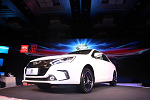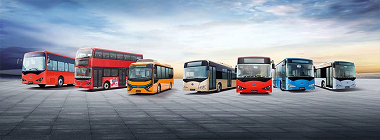Buffett’s BYD Rises in the East, Sets in the …
Burney Simpson
Warren Buffett’s BYD Co. is riding high with its electric buses this week, but the firm has a history of hitting potholes and its driverless vehicle efforts lag other automakers.
BYD (BYDDY) is a stock that seems to perform like something out of the old Over-The-Counter Pink Sheets, even though it has a market cap of $4.3 billion and more than 130,000 employees. And it’s got the added cache that Buffett’s Berkshire Hathaway owns a reported 10 percent of the firm.
BYDDY is hovering around $9.25 after hitting a bottom of $6.88 a month ago. The stock set a 52-week high of $14.75 last September, but December proved no holiday season, with the stock plummeting from around $12 to $7.20 in less than 30 days. BYD leadership held a conference call to allay investor fears over rumors of Russian contracts gone sour and talk the Oracle of Omaha may be selling his stake. The rumors proved wrong, and Russia accounts for less than 1 percent of sales.
Investors have been returning to the stock, a component of the Driverless Transportation D20 Stock Index, and it has risen for four weeks straight. BYD has received some positive analyst reports, its QIN model is making noise, and it received friendly press on its electric buses and their potential for reducing pollution in China.
BYD accounts for a tiny 0.6 percent of the D20 Index, overshadowed by giants Google (GOOG) with 38 percent and Tesla (TSLA) with 16 percent.
BATTERIES AND BUSES
BYD manufactures electric vehicles, rechargeable and solar batteries, mobile handsets and related automotive products. BYD claims it is the world’s largest manufacturer of lithium ion batteries and serves such clients as Samsung, HTC, and Motorola.
Subsidiary BYD Auto is based in Shenzen, near Shanghai. It sold more than 506,000 passenger cars in China in 2013, making it the largest auto seller in the country. It has a reported 30 percent market share of new energy vehicles in China.
BYD is producing autonomous technology, though it appears to be more of a follower than a trailblazer like Volvo or Daimler.
From its description, the BYD i system is your typical in-vehicle, network communication platform that can be accessed through secure wireless devices and offers various remote conveniences like door lock/unlock and road-side assistance. There is also anti-lock braking and tire pressure monitoring.
The BYD Driver Fatigue Warning System monitors driver eyelids and head movements with in-car cameras and sends an alert when eyes are closing. BYD also claims its E-Driver remote driving system allows operators to start and steer their car from about 20 yards away.
BUILD YOUR DREAMS
BYD, which stands for Build Your Dreams, puts more of an emphasis on its electronic buses which could cut down on the pollution bedeviling China’s urban areas. At this time the company isn’t making the connection between electric and driverless technology.
A Frost & Sullivan report from last fall pre dicted that the use of by transit systems of hybrid and electric heavy-duty buses will grow significantly by 2020, and account for more than 15 percent of all transit buses by then.
dicted that the use of by transit systems of hybrid and electric heavy-duty buses will grow significantly by 2020, and account for more than 15 percent of all transit buses by then.
Proponents argue that electric buses are cost competitive when considering the total cost of ownership, according to IEEE, the technical professional association. Electric buses are expensive to purchase compared with competitors run with diesel and natural gas, but over 10 years the money saved on fuel and maintenance almost adds up to the initial investment. Meanwhile, electric vehicles cut pollution drastically.
BYD Auto is using its electric buses to expand into markets beyond China. For instance, in January, BYD pledged to invest $51 million and hire 590 workers at two California plants in exchange for a five-year, $3 million corporate tax credit from the state. The plants will help BYD deliver 20 buses to the Los Angeles metro transit authority, joining the five already in use in the air pollution-conscious region.
For every success, BYD Auto seems to also have a failure. Long Beach Transit in California cancelled in March, 2013, a $12 million contract due to concerns over the salaries that BYD pays, and questions about its compliance with Federal Transit Administration procedures.
The question for BYD is whether it can convince the world that electric power is an improvement on fossil fuel for vehicles. The jury is out.

